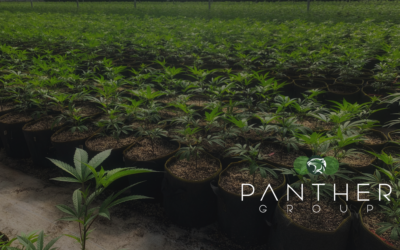This year in cannabis has been a game of evolution—an industry maturing through consolidation, recalibrated investment strategies, and stark shifts in how success is defined. From the lens of The Panther Group, here’s a breakdown of the year’s highlights, challenges, and what lies ahead for the cannabis space.
The Rise of Consolidation: A Win for Stability?
Consolidation has been the name of the game, particularly in mature markets like Massachusetts. A key example is Pioneer Valley’s acquisition, where a larger player integrated their manufacturing capabilities to form a full vertical. This type of consolidation reflects the cannabis industry’s natural evolution, mirroring patterns seen in other emerging markets.
For businesses, consolidation strengthens operational frameworks, bringing smaller players together to create robust entities. For consumers, the potential upside is better quality products as seasoned operators enter the fold. However, not all markets experience consolidation equally. In Florida, for instance, consolidation often favors monopolistic tendencies, resulting in fewer consumer benefits and higher barriers for smaller operators.
This dual nature underscores a hard truth: consolidation isn’t inherently a win or a loss—it’s about execution and market dynamics.
The Pivot Away from Equity
A defining challenge of 2024 has been the scarcity of equity capital. By midyear, Panther shifted focus from raising equity to prioritizing debt financing for established businesses. This wasn’t a decision taken lightly but reflected broader economic headwinds and investor sentiment.
Early in the year, our goal was to help every cannabis entrepreneur we could, but as reality set in, we became more selective. The pivot marked a sobering realization: not all businesses can survive. Our role evolved into supporting the top-tier 20%—the stable, scalable operators who are critical to the industry’s long-term health. Helping these businesses sustain and grow is crucial for market survival and maturation.
Lessons from the Investment Landscape
A significant shift in cannabis investing over the last several years and even more pronounced this year and expectedly moving forward has been the demand for historical performance. Dreamy pitches and ambitious projections no longer cut it. Investors are looking at track records and proven expertise, especially in saturated or price-pressured markets.
For new market entrants, this means one of two paths:
- Partnerships: Align with experienced operators to leverage their knowledge and avoid costly missteps.
- Learning by Failing: Enter independently but be prepared to fund your learning curve—a strategy requiring deep pockets and resilience.
Either way, success is about strategy, not just enthusiasm.
A Shift in Operator Dynamics
The green rush is over. The cannabis space, once open to anyone with a license and a dream, now demands sophistication and adaptability. While the first generation of operators often relied on trial and error, today’s market rewards expertise and innovation.
Even established Multi-State Operators (MSOs) aren’t immune to the pressures of evolution. Many struggle to innovate, leaving room for smaller, more agile players to disrupt the status quo. This dynamic underscores a key theme: staying on top requires constant reinvention, whether you’re an MSO or a newcomer with a fresh approach.
A Shift Towards Localized Events for Targeted Value:
The industry is witnessing a move from large-scale, biannual trade shows to more localized and frequent events. These localized shows are tailored to connect businesses with regional opportunities, customers, and niche markets. This shift reflects operators’ reduced willingness to spend on large booths and the need for tangible ROI, as the large-scale gatherings increasingly serve as networking hubs rather than deal-making venues. Meanwhile, pre-vetted, curated networking opportunities at such events could still enhance their relevance and impact for capital-raising or M&A activities.
What Lies Ahead: Challenges and Opportunities
The cannabis industry is still in its early days—perhaps the first quarter of a long game. But the field is narrowing, and only the best-equipped will thrive. For Panther, this year reinforced several truths:
- Resources are everything: Talent, capital, and experience are non-negotiable for success.
- Investors are smarter: The days of funding untested operators are behind us. Experience and proven results drive investment decisions now.
- Partnerships matter: The path to success increasingly lies in collaboration, not competition.
The industry will continue to evolve, and with it, so will the opportunities. For those who adapt, innovate, and approach strategically, there’s still plenty of green ahead. But for the unprepared, the risks are higher than ever.
Closing Thoughts
At Panther, our mission remains to guide the industry toward sustainable growth, prioritizing operators who can weather the storm and drive progress. While 2024 brought its challenges, it also solidified our belief in the potential of cannabis. The rush may be over, but the game is far from finished. The winners will be those who play strategically, think long-term, and evolve with the industry.






0 Comments